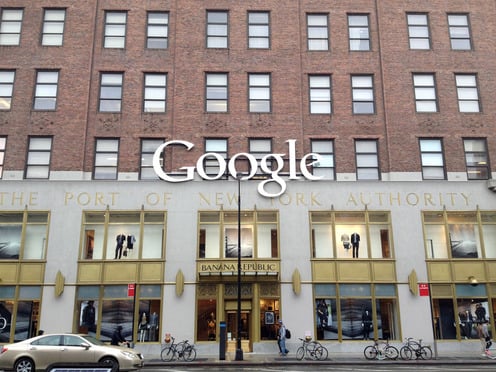The coalition of businesses and organizations, organized by a team from Quinn, Emanuel, Urquhart & Sullivan, argued in its amicus brief that no employee should face discrimination for sexual orientation, which they argued is “inherently sex-based.” Quinn Emanuel partners Kathleen Sullivan and Todd Anten were among the lawyers who filed the brief.
“These businesses and organizations are committed to giving everyone the opportunity to earn a living, excel in their profession, and provide for their family free from fear of unequal treatment,” the amicus brief said. “Creating workplaces in which employees are and feel safe from discrimination frees them to do their best work, with substantial benefits for their employers.”
A similar amicus brief was filed in a case that was heard en banc before the U.S. Court of Appeals for the Second Circuit, Zarda v. Altitude Express, where 50 companies pressed for sexual orientation protections in the workplace. Many of the companies in these briefs overlap, including Edelman, Levi Strauss and Ben & Jerry’s.
In the Second Circuit case, dozens of groups filed in support of sexual orientation protections, including the EEOC, which has trumpeted the position that sex discrimination includes discrimination against orientation and gender identity. The Trump administration’s Justice Department filed an opposing brief in the Zarda case that argued Congress would need to pass sexual orientation protection and alter Title VII in order for protections to be ensured. At oral argument, Justice Department lawyer Hashim Mooppan was needled about the disconnect between the two agencies.
The coalition of companies in the Supreme Court case argued for clarity and uniform positions on this issue, particularly given the different stances from the government agencies.
The U.S. Court of Appeals for the Seventh Circuit in April said sexual orientation protection should be considered under federal civil rights laws, a decision hailed as a landmark ruling for LGBT rights. That ruling created a split, where the Eleventh Circuit and other rulings have concluded the civil rights statute does not include sexual orientation protections.
The companies noted in their brief that a survey of the top 50 Fortune 500 companies and the top 50 federal government contractors showed the majority of respondents connect policies prohibiting sexual orientation discrimination with a better bottom line. The amicus brief also argued that a patchwork of state and local regulations around the country puts some companies in a difficult position.
“We believe in treating every person we come into contact with—whether it’s our employees, our consumers, or our vendors—with dignity and respect,” said Anna Walker, senior director for global policy and advocacy at Levi Strauss & Co. “That value is central to our business—but more importantly, it’s the right thing to do. Discrimination hurts people, holds back communities, and tarnishes our nation’s image.”
The Human Rights Campaign, which provides an equality index to examine whether employers protect LGBT workers, shows in its annual reports that most Fortune 100 companies have adopted policies to provide equal protections for gay and lesbian workers.
The 2017 report saw the largest increase in businesses in the history of the survey, 515 employers, earning perfect scores. Businesses offering transgender inclusive health care coverage also jumped to 647 from 511 companies over the year.



